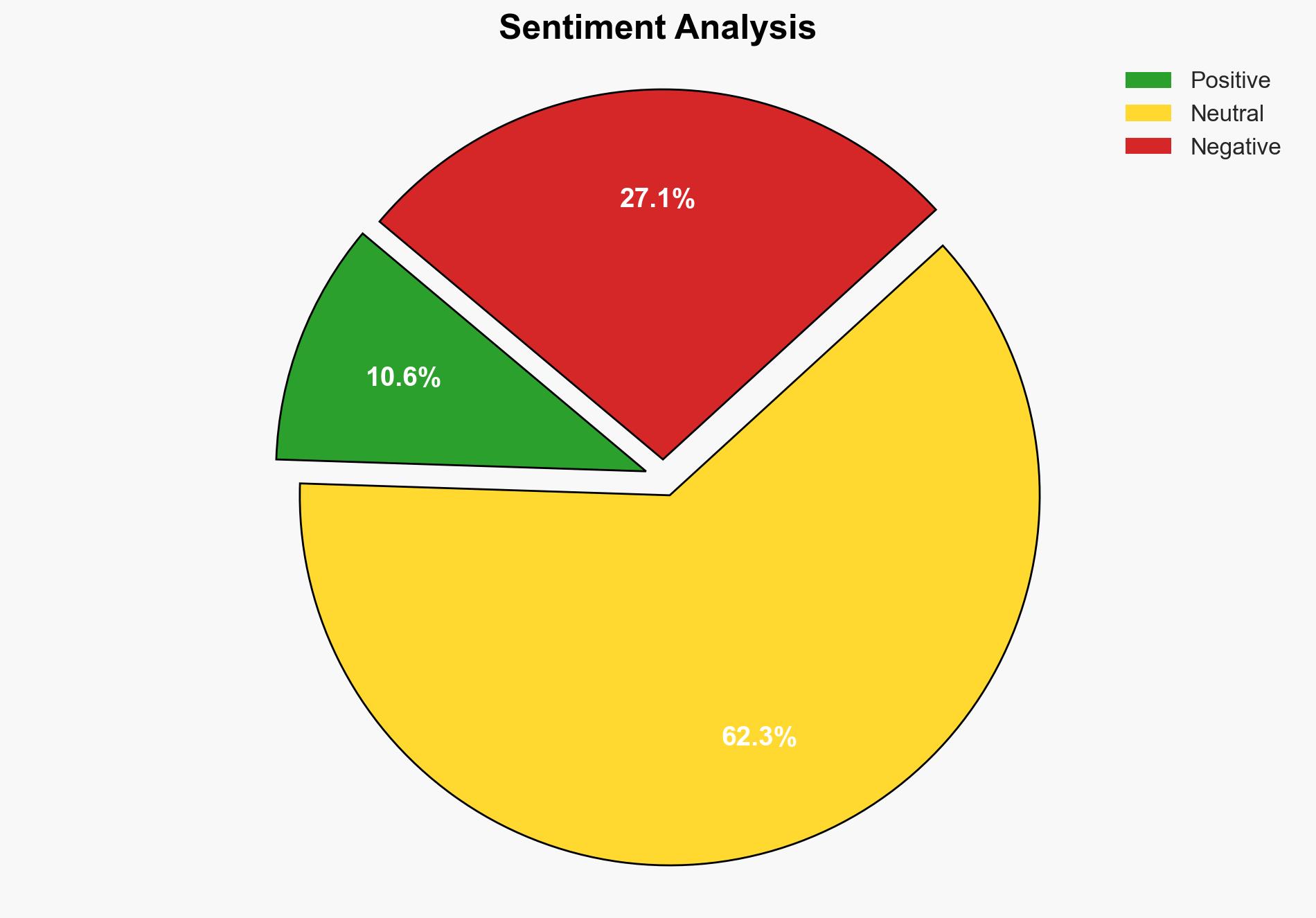State Department Will Use AI to Search for Pro-Hamas Students to Deport – Gizmodo.com
Published on: 2025-03-07
Intelligence Report: State Department Will Use AI to Search for Pro-Hamas Students to Deport – Gizmodo.com
1. BLUF (Bottom Line Up Front)
The State Department is reportedly implementing an AI-driven program to identify and potentially deport students in the U.S. who express pro-Hamas sentiments. This initiative, which involves scanning news reports and social media accounts, has raised concerns about potential biases and the infringement of free speech rights. The program’s effectiveness and ethical implications remain under scrutiny, particularly in the context of ongoing geopolitical tensions and domestic policy debates.
2. Detailed Analysis
The following structured analytic techniques have been applied for this analysis:
SWOT Analysis
Strengths: Utilization of advanced AI technology for national security purposes; potential deterrent against extremist sympathies.
Weaknesses: Risk of AI biases leading to false positives; potential violation of civil liberties and free speech.
Opportunities: Enhancement of national security measures; improved monitoring of foreign nationals.
Threats: Backlash from civil rights organizations; increased tensions on college campuses.
Cross-Impact Matrix
The AI program may influence U.S. relations with Middle Eastern countries, potentially affecting diplomatic ties and regional stability. Domestically, it could impact the political landscape, fueling debates over immigration and free speech.
Scenario Generation
Best-case scenario: The program effectively identifies genuine threats without infringing on civil liberties, enhancing national security.
Worst-case scenario: Widespread false positives lead to wrongful deportations and significant backlash, both domestically and internationally.
Most likely scenario: Mixed results with ongoing debates over the balance between security and civil rights.
3. Implications and Strategic Risks
The implementation of AI for monitoring pro-Hamas sentiments poses significant risks, including potential violations of free speech and privacy rights. There is also a risk of exacerbating tensions on college campuses and straining U.S. relations with Middle Eastern allies. Economically, the program could impact the U.S. education sector, particularly in terms of international student enrollment.
4. Recommendations and Outlook
Recommendations:
- Conduct thorough testing and validation of AI systems to minimize biases and false positives.
- Engage with civil rights organizations to address concerns and ensure transparency in the program’s implementation.
- Consider alternative measures that balance national security with the protection of civil liberties.
Outlook:
Best-case: The program is refined to effectively target genuine threats while respecting civil liberties.
Worst-case: The program leads to significant civil unrest and diplomatic fallout.
Most likely: Continued debates and adjustments as the program is implemented, with mixed outcomes.
5. Key Individuals and Entities
The report references several individuals and entities, including Elon Musk and the Trump administration, without specifying their roles or affiliations. These figures are central to the discussion of AI technology and its application in government policy.





